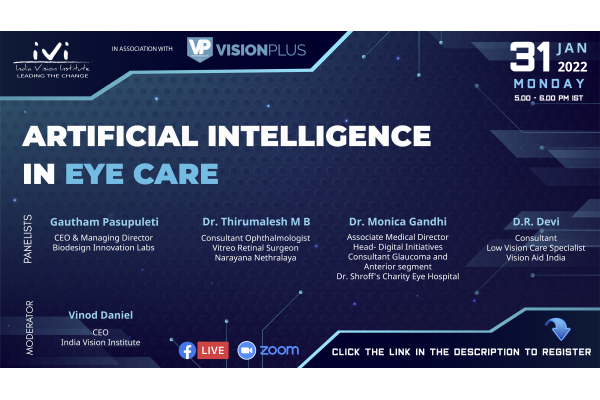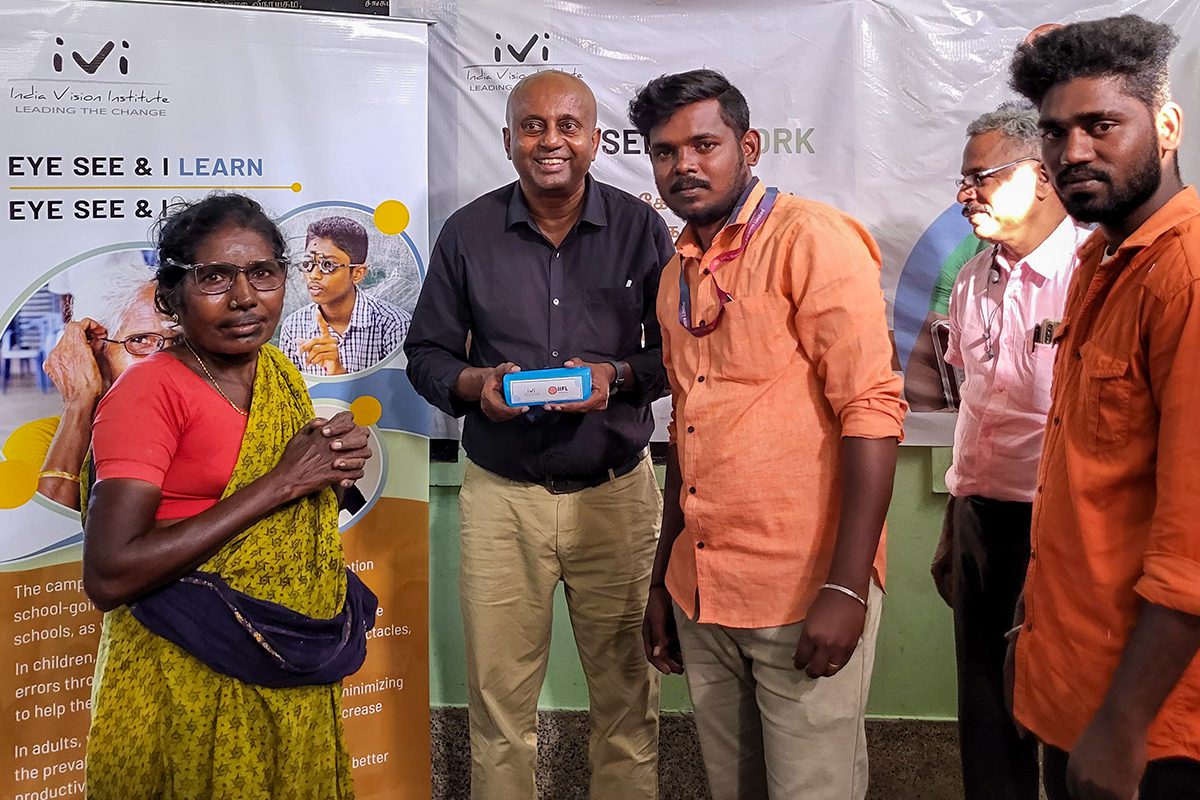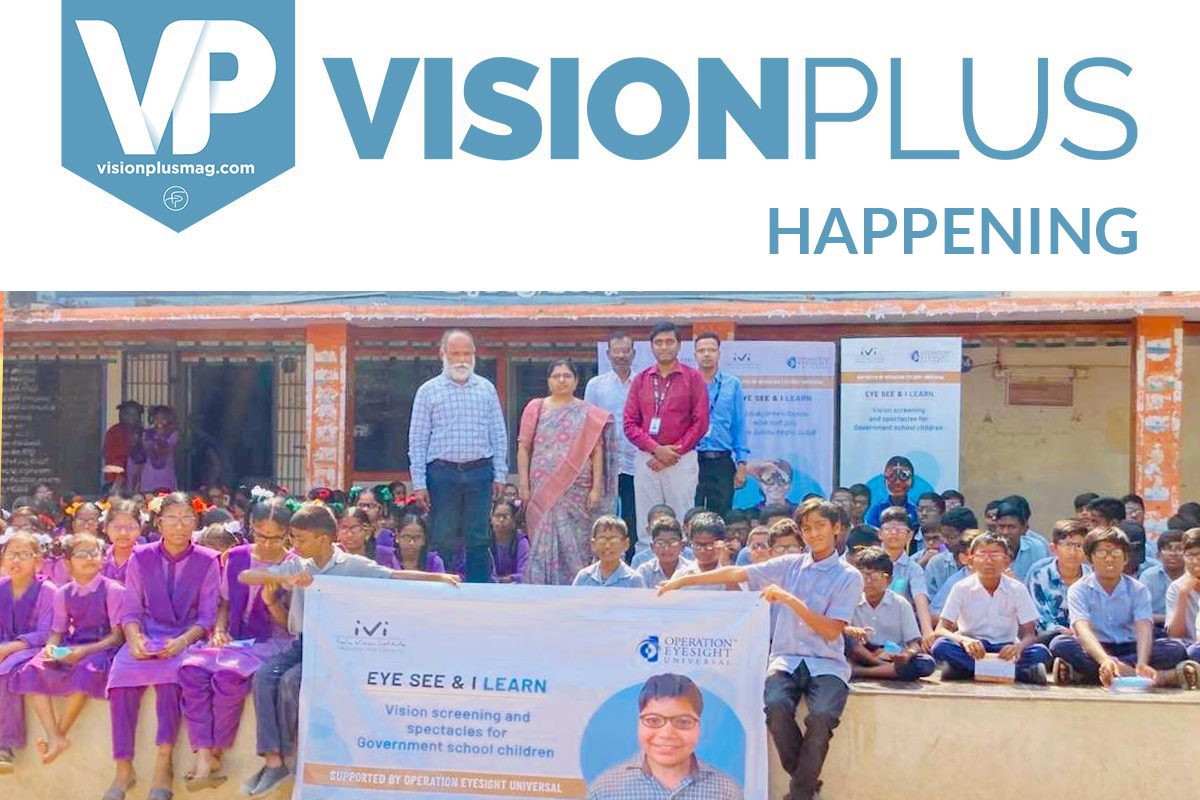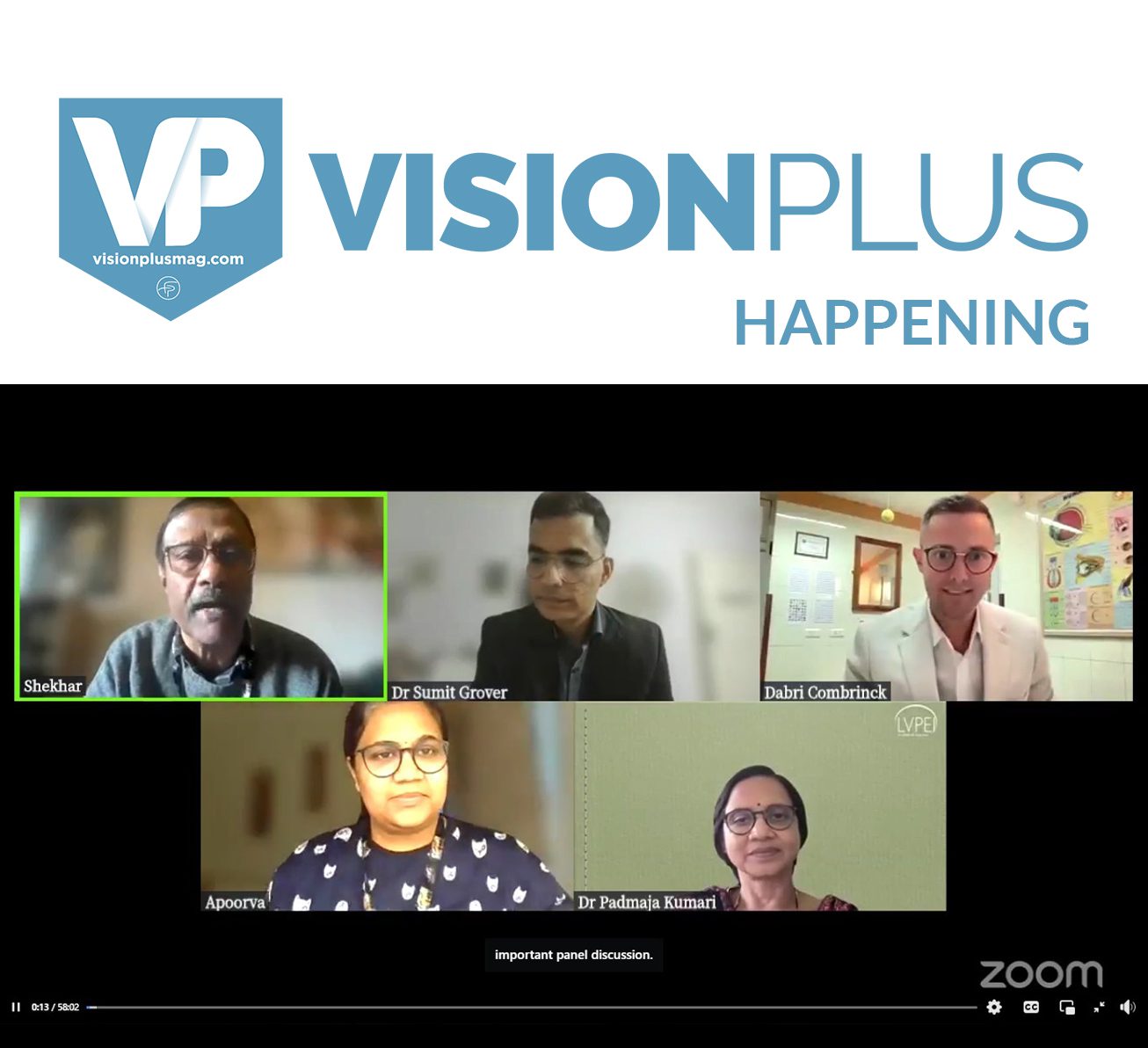As an emerging technology, Artificial Intelligence (AI) has a range of applications in fields as diverse as law enforcement, manufacturing, agriculture and finance. AI holds great potential for use in healthcare. Eyecare, in particular, may see a transformation in the coming years as AI-based technology promises to bring about a quantum change in service delivery.
An India Vision Institute-VisionPlus magazine panel discussion on ‘Artificial Intelligence in Eyecare’ on January 31 focused attention on AI’s eyecare applications and its prospects going forward.
Moderated by Vinod Daniel, the panel comprised Dr Monica Gandhi, Associate Medical Director, Head- Digital Initiatives, Consultant Glaucoma and Anterior Segment, Dr Shroff’s Charity Eye Hospital, Dr Thirumalesh M B, Consultant Ophthalmologist, Vitreo Retina Surgeon, Narayana Nethralaya, Gautham Pasupuleti, CEO & Managing Director, Biodesign Innovation Labs, and Ms D.R. Devi, Consultant and Low Vision Care Specialist, Vision Aid India.
Mr Daniel underscored the potential AI holds and its ability to possibly transform rural eye care service accessibility. He asked panelists to identify the benefits AI offers specially to improve eye care. Panelists pointed to the low doctors-to-patients ratio as a major hurdle to eye care access. The lack of eye care specialists in remote regions means that patients more often access specialised eye care only at a very late stage.
AI-based algorithms can step in to bridge the gap between primary-level eye care and more specialised care. They can be used to examine the parameters of individual patients, for instance fundos pictures for Glaucoma. Putting in a fundos picture, any eye care professional can get an idea on whether a person has Glaucoma. This kind of early detection at the primary level can make a huge difference by enabling patients to gain timely access to specialists who may only be available at tertiary eye care facilities. Asynchronous tele-optometry is also an important tool and AI can play a role by helping identify patients who are particularly at risk and refer them to specialists located elsewhere through tele-optometry technology.
“AI is here to revolutionise healthcare and eye care in particular. There have been many innovations. These make things very exciting. Clinically, much has happened in the field of diabetic retinopathy, glaucoma and ARMD,” observed Dr Monica Gandhi. AI is revolutionising eye care by saving both time and energy. It is also paving the way to reach out to a larger population with eye care services. From screening for diabetic retinopathy, glaucoma, age-related macular degeneration, to offering an explanation behind the diagnosis, AI has been transforming the eye health sector for the better.
According to D.R. Devi, AI has applications in screening, diagnosis, and in assistive devices for the blind and visually impaired. “AI will play an important role in the development of cost-effective, sustainable models for the assistive devices of the future,” she noted. This decade is predicted to usher in an exciting era in the development of AI-based assistive devices for blind and visually impaired people.
The technology is, in fact, capable of much more than just rendering assistance in the clinical aspects of eye care. With the large amounts of data being gathered across the world, AI can help identify geographical areas where patients require eye care and where access to eye care is insufficient. This can help in taking eye care to areas that need greater focus.
Gautham Pasupuleti highlighted the importance of indigenously developed technology. “Why can’t India have its own AI-based systems?” Arguing that foreign companies implementing AI-based systems in India is not always an ideal situation to be in, he noted that these companies could use their experience in the Indian market to generate much of India’s spatial data. Indian innovators and investors ought to do more in tailoring India-specific AI-based eye care solutions, and researchers need to undertake studies to understand the impact of AI in India.
Mr Daniel emphasised the need for sustainability and affordability of AI-based eye care solutions, noting that there are currently no provisions for sustaining screening costs under any eye care program. Transferring the burden of these costs to the customers may lead to inequitable access to services. “It is unreasonable to expect private players to first serve as the developers of AI-based solutions and to then offer screenings at significantly subsidised rates,” Dr Thirumalesh M B said. Governments must get involved and they should invest more resources to support AI-based screenings. Such support can prevent unnecessary visits to the hospital by those who do not actually require advanced treatment.
AI is the future of eye care. It is time for governments, the private sector and not-for-profit organisations to embrace it. All the sectors and stakeholders should work together to utilise AI to its maximum potential and make eye care accessible in a sustainable and affordable manner for every section of society.












